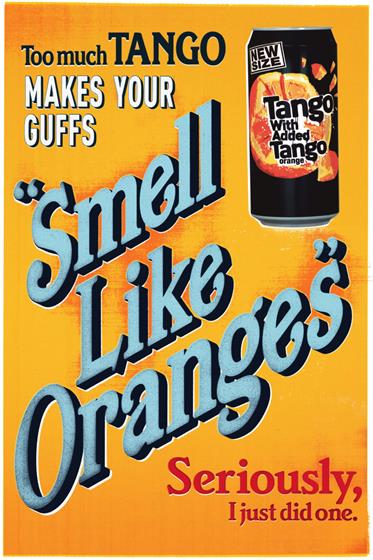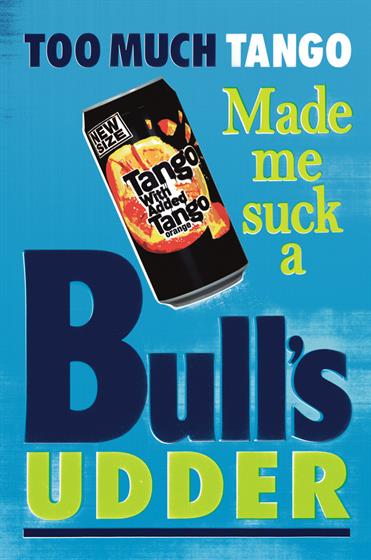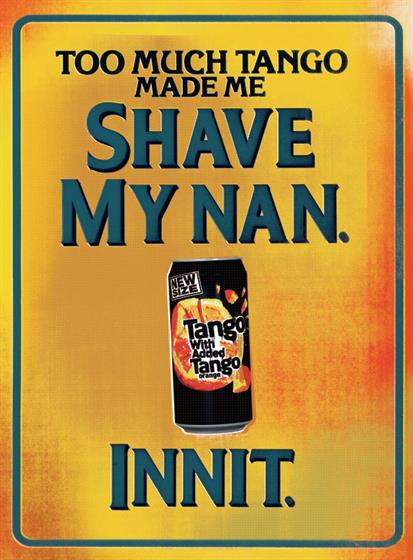The majority of those who complained felt the ad, which stated "Made me suck a bull’s udder", was inappropriate as they thought it implied oral sex with a bull.
Some of the complainants found the ads’ references to "guffs" offensive and felt the phrase "shave my nan" was irresponsible and unsuitable for public display as it suggested the act of shaving one’s vaginal hair.
Britvic, the manufacturer of Tango, said it had tested the ads.
It added that after complaints were received, it withdrew the ads from outdoor and press media, while other executions in the same campaign ran in the press for a further few weeks.
The company explained that the Tango brand was synonymous with a cheeky sense of humour aimed at males aged between 17 and 25.
The ads, by Bartle Bogle Hegarty, were intended to demonstrate the orangey taste of Tango and the occasionally dramatic side-effects it produced in a humorous and nonsensical way.
Britvic said the "bull’s udder" ad was intended to be light-hearted and comical, and complete nonsense as bulls do not have udders.
Britvic believed its target audience would appreciate the humour in the ads, and for other people it felt the choice of the words "guffs" and "nan" were suitably harmless and vague in meaning so as not to cause offence.
The ASA considered that most people would know that bulls don’t have udders, but children and other innocent viewers would not then interpret "suck a bull’s udder" in a sexual way.
Despite the possible sexual innuendo that some may infer from the ad, the watchdog felt the ad presented such an outlandish and ridiculous scenario as opposed to an explicit reference to bestiality that it was unlikely to cause serious or widespread offence.
It felt the use of the word "guffs", which referred to breaking wind, while likely to be seen as vulgar to some would be seen as humorous by others and was also unlikely to cause widespread offence.
The watchdog noted the side-effect in the third ad would be seen as the urge to shave a hairy, elderly relative.
It concluded the complainant’s interpretation was unlikely to be shared by the majority of viewers and therefore deemed it unlikely to cause offence. No further action was necessary.





.jpg)


.jpg)